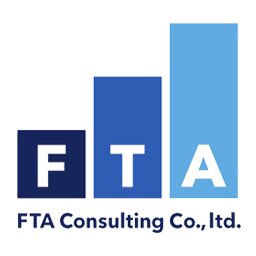Best Transportation Lawyers in Thailand
Share your needs with us, get contacted by law firms.
Free. Takes 2 min.
Or refine your search by selecting a city:
List of the best lawyers in Thailand
About Transportation Law in Thailand
Transportation plays a vital role in Thailand's economy and daily life. The country boasts a well-established network, including roads, railways, air transport, and waterways. Transportation laws in Thailand govern a wide array of activities and frameworks related to the movement of goods and people, addressing both domestic transportation and international engagements. Due to a combination of national regulations and international treaties, the legal landscape can be quite complex, covering areas from traffic regulations to commercial transportation logistics.
Why You May Need a Lawyer
There are several common scenarios where individuals or businesses may require legal assistance in the field of transportation in Thailand:
- Dealing with traffic violations or accidents.
- Navigating the complexities of transport contracts and logistics agreements.
- Addressing customs and import/export issues for international transportation.
- Ensuring compliance with safety regulations for different modes of transport, including aviation and maritime laws.
- Resolving disputes related to delays, cargo damage, or loss in transit.
- Understanding environmental regulations affecting transportation projects.
Local Laws Overview
Thailand's transportation laws cover several key areas:
- Traffic Regulations: Governed by the Land Traffic Act, these laws address vehicle registration, road use, and driving behavior to ensure safety on Thai roads.
- Commercial Transport: Includes the regulation of freight forwarding, logistics services, and carriage of goods, influenced by both domestic laws and international conventions.
- Customs and Import/Export Laws: Managed by the Customs Department, these laws regulate the movement of goods into and out of Thailand, including duties and trade regulations.
- Aviation and Maritime Laws: Governed by specific statutes and international treaties, covering the safe and legal operation of airlines and shipping lines.
- Environmental Regulations: Includes laws that address emissions, waste management, and the impact of transportation on the environment.
Frequently Asked Questions
What is required to drive legally in Thailand?
You need a valid driver's license, either Thai or international. Tourists can drive in Thailand using an International Driving Permit (IDP).
What should I do if I am involved in a traffic accident?
Remain at the scene, contact the local police, and exchange information with the other party involved. Notify your insurance company promptly.
Are there specific laws for ride-sharing services in Thailand?
Yes, ride-sharing services like Grab are subjected to specific regulations which include licensing and insurance requirements for drivers.
How are public transportation services regulated?
Public transportation is overseen by the Department of Land Transport, which imposes regulations to ensure safety and reliability of services such as buses and taxis.
What should I know about shipping goods internationally through Thailand?
Ensure compliance with customs regulations, understand tariffs and duties, and be familiar with logistics and freight requirements.
What are the penalties for traffic violations?
Penalties vary depending on the severity of the violation and can range from fines to license suspension or revocation.
How does Thailand manage environmental impacts of transportation projects?
Environmental impact assessments (EIAs) are required for large transportation projects, and operators must comply with emissions and waste management laws.
Can foreigners own transportation companies in Thailand?
Foreign ownership is regulated, often requiring a Thai partner or compliance with the Foreign Business Act, depending on the business type.
How are transport unions and workers' rights protected?
Transport workers are protected under labor laws that govern working conditions, wages, and unionization rights.
What should I be aware of regarding logistics contracts in Thailand?
Contracts should clearly outline terms regarding delivery, risk management, and liability to avoid disputes and ensure compliance with local laws.
Additional Resources
Consider the following resources for more information or assistance related to transportation in Thailand:
- Department of Land Transport
- Royal Thai Police for traffic regulations
- Thai Customs Department for import/export guidelines
- Ministry of Transport
- International Chamber of Commerce (ICC) Thailand for logistics and trade support
- Legal Aid Organizations for affordable legal assistance
Next Steps
If you require legal assistance in the field of transportation, here are some steps you can consider:
- Identify the specific area of transportation law applicable to your situation.
- Consult with a legal professional who specializes in transportation law in Thailand.
- Collect all relevant documentation related to your case, such as contracts, reports, and correspondence.
- Consider reaching out to professional bodies or associations for recommendations on qualified legal practitioners.
Being proactive and informed is key to addressing your transportation law needs effectively in Thailand.
Lawzana helps you find the best lawyers and law firms in Thailand through a curated and pre-screened list of qualified legal professionals. Our platform offers rankings and detailed profiles of attorneys and law firms, allowing you to compare based on practice areas, including Transportation, experience, and client feedback.
Each profile includes a description of the firm's areas of practice, client reviews, team members and partners, year of establishment, spoken languages, office locations, contact information, social media presence, and any published articles or resources. Most firms on our platform speak English and are experienced in both local and international legal matters.
Get a quote from top-rated law firms in Thailand — quickly, securely, and without unnecessary hassle.
Disclaimer:
The information provided on this page is for general informational purposes only and does not constitute legal advice. While we strive to ensure the accuracy and relevance of the content, legal information may change over time, and interpretations of the law can vary. You should always consult with a qualified legal professional for advice specific to your situation.
We disclaim all liability for actions taken or not taken based on the content of this page. If you believe any information is incorrect or outdated, please contact us, and we will review and update it where appropriate.
Browse transportation law firms by city in Thailand
Refine your search by selecting a city.















